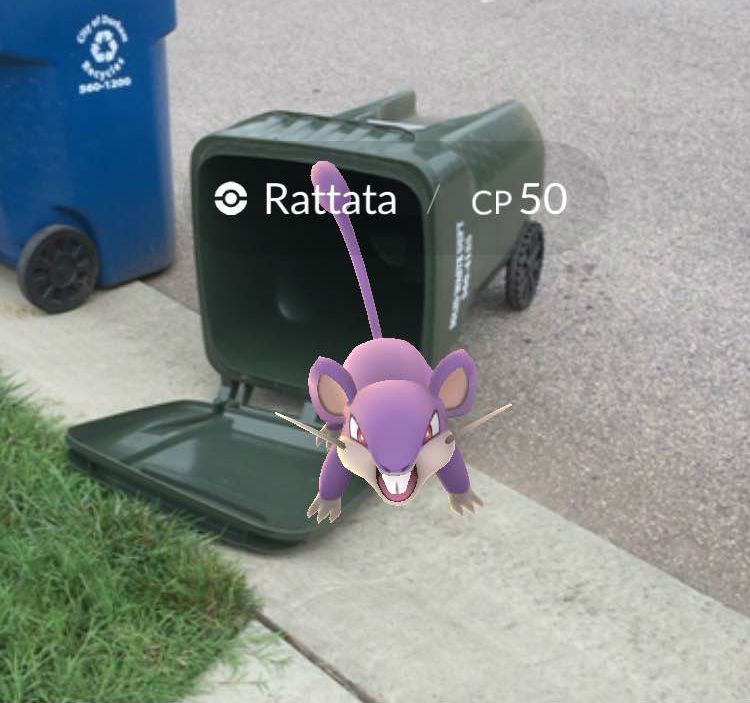What Carl Jung and Sigmund Freud would (probably) say about Pokemon Go

Gotta catch ‘em all! The chipper tag line has never felt more true as millions of people roam their towns playing Pokemon Go. This particular game has some traits that explain how its moment of zeitgeist came to be. The new spin on a beloved franchise. The heartwarming interactions with strangers. The cuteness of the critters you’re catching.
But at its core, Pokemon Go is just about collecting. And that’s a component in lots of games, whether it’s saving all the teensies in Rayman Legends, having totally gold decks in Hearthstone, or picking up every single broom in Skyrim.
Everyone has their personal motivations, the collection mechanics they love and hate. But beyond those individual tastes, is there a reason that all humans seem inclined toward amassing items? Why do we like collecting things?

Some good theories, some weird theories
Even though collecting is a common behavior in and out of games, psychologists haven’t reached much consensus about where that drive comes from. But some luminaries of the field have ideas with varied degrees of plausibility.
What do you think of when I say psychology? Freud! His take is, unsurprisingly, pretty gross. He theorized that collecting behaviors are connected to potty training. His thought was that shitting our pants as infants was a traumatic experience, and that collectors are really just trying to get back all the shit. Yikes.
Carl Jung took a different approach. Given his belief in the collective unconscious, he hypothesized that collecting stems from the memory of our old hunter-gatherer lifestyle. Since we no longer have to collect food to stay alive, we turn that impulse to other, more trivial subjects.
Modern psychology has added some other ideas into the conversation about collecting. Some see it as a way for people to feel in control. In a chaotic and uncaring world, it’s nice to feel like you’re in charge. That may be doubly true for people who have experienced a past trauma.
Sign up to the GamesRadar+ Newsletter
Weekly digests, tales from the communities you love, and more
Finally, some psychologists see collecting as a way for people to create a legacy. The items that go into a collection don’t usually have the mortal lifespans, so they might be subconsciously seen as ways to extend our presence in the world.
Most of those concepts make sense in explaining Pokemon Go’s popularity. Gaming has the added incentive of showing players just how big and fancy your collection can get. For instance, a game might have that 100% completion trophy, or your friend might show you a pokemon that you haven’t found. Those in-game systems could give added incentive for collecting.
Epics and legendaries
There are even reasons behind why we might go a little nuts trying to snag that rare pokemon. For that, we turn to economics and the concept of scarcity.
First off, when there’s less of an in-demand resource, its value goes up. Good old supply and demand in action. Usually that works out as a higher price, and sometimes that’s how it goes in the gaming context too. You can trade in-game money to a vendor for a legendary weapon or spend real money to get that sweet character skin in a free-to-play game. But it includes non-intrinsic value too. More rare items mean your collection is cooler, and thus your legacy is cooler. Who doesn’t want to feel cooler?
Think about how a really good deal makes you more likely to move on a purchase. If you feel that you’re not likely to find such a good price again, then you’ll probably want to act on it quickly. So whether you actually want to find one of the rares or ultra-rares, or whether you just have a hole in your collection that you want to fill, you’ll go to greater lengths to get it.
And if you ascribe to Jung’s theory, there might also be some hunter-gatherer history in the scarcity argument. If early people came across a rare resource, they’d probably pick it up, whether or not they needed it. Who knows when they’d come across it again?
I have no tie-ins for Freud’s theory. Ick.
Is collecting a problem?
In most of the scientific discussion around collecting, there’s usually some words of warning about the dangers of going too far. Don’t worry, enjoying Pokemon Go doesn’t mean you’ll wind up on an episode of Hoarders one day. There may not be consensus on the drive behind collecting, but psychologists do agree that it’s not usually cause for concern. So as long as your job and personal relationships aren’t suffering, you’re probably okay.

Anna is a freelance writer who has written for the likes of GamesRadar, Ars Technica, Blizzard Watch, and Mashable. She's also created games as part of various game jams. Anna likes games about solving puzzles and/or shooting things. She wishes she could trade zingers with GLaDOS and have beers with Garrus Vakarian in real life.


